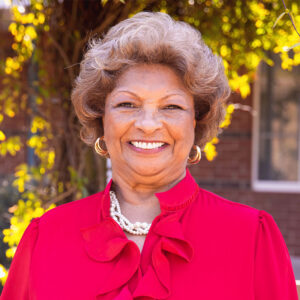 When Maria Spaulding started her career, she wasn’t sure what she wanted to do, but she knew she did not want to have anything to do with “disadvantaged people or people who had a lot of problems.”
When Maria Spaulding started her career, she wasn’t sure what she wanted to do, but she knew she did not want to have anything to do with “disadvantaged people or people who had a lot of problems.”
You can hear her laugh as she tells this part of her life story. “I wanted to work with people who were healthy, I wanted to work in economic development with a lot of money. That’s what my goal was when I was younger. Working in human services was a total accident.”
Call it a “happy accident” then, because Maria Spaulding’s work over the span of her 30-year career in human services included co-founding Healing Transitions with Fred Barber and Barbara Goodmon. She remembered the day they decided to make it happen.
“We were on the plane coming back from that first visit to The Healing Place in Kentucky, and we could not get back here fast enough to start calling people. We just put our heads together and said ’Come hell or high water, we’re bringing this program to Raleigh, and nothing is going to stop us’,” she shared. “And nothing did. It was wonderful. One of the best days of my life was when we opened and probably the most outstanding thing I feel like I’ve done in my whole career. I would never exchange it for anything. Never.”
Maria recalled the enormous task her team faced when she was selected to head up Wake County Human Services and reorganize the social services departments across the county.
“We were working to integrate our services because we realized that people never came to us with one issue, they came with several issues. If you weren’t able to address all of the issues, they would never become a whole person and be able to be self-sufficient, keep their families together, and stay out of trouble. It just never worked,” she shared. “We conducted a survey and found that the things that kept people from being successful were poverty and substance use problems. And that’s when we knew we had to find a new solution to this problem for our community.” Even though Healing Transitions has been open for nearly two decades now, Maria says she still hears from people whose lives have been changed as a result of the program.
“I remember going to the grocery store a few years ago and the cashier said, ’You don’t know me, but I graduated from Healing Transitions, and I’ve been sober for several years now. And you sent a bedroom furniture set from your house to help me get started. I still have that furniture in my bedroom,’ he told me.”
Maria continued to reflect on the legacy of her life’s work and of Healing Transitions’ impact in the community.
“It’s very gratifying to know you had a hand in someone’s success in their life. To see them working, happy, and back with their family. It’s tremendous. Believe it or not, I found my mission. Human services was the very thing I had run away from for almost 20 years of my career. This was the kind of work that wasn’t work, and it really became my life’s mission. And I still love it today!”
